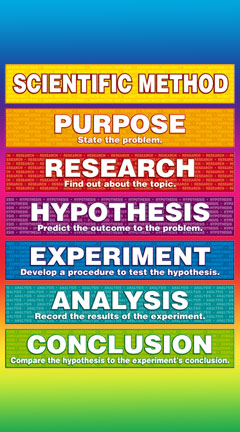Archival Notice
This is an archive page that is no longer being updated. It may contain outdated information and links may no longer function as originally intended.
Home | Glossary | Resources | Help | Course Map
Scientific Method. The principles and empirical processes of discovery and demonstration considered characteristic of or necessary for scientific investigation. The scientific method generally involves observing a phenomenon, formulating a hypothesis concerning the phenomenon, experimenting to determine whether the hypothesis is true or false, and a conclusion that validates or modifies the hypothesis.
The witness can review a scientific or medical report or a testing analysis. The witness can also help the attorney determine and identify what results could be recreated by a retest of the opposing experts' analysis.
An expert can educate the attorney on the specific scientific discipline's basic elements. The attorney may also need to be educated regarding the method(s) and testing procedure(s) used in the case. An expert may be necessary to explain why the specific method, procedures, equipment, etc., were chosen over other available ones (including a specific lab protocol, a standard operating procedure, etc.).
The expert may recommend additional literature or scientific publications related to the discipline or testing procedure. He or she should include relevant technical literature and "learned treatises" that may be used by the other party's experts.
A witness can also help prepare the attorney for case theories, discovery, deposition, direct examination and cross-examination by providing a list of predicate questions related to the discipline.
Additional Online Courses
- What Every First Responding Officer Should Know About DNA Evidence
- Collecting DNA Evidence at Property Crime Scenes
- DNA – A Prosecutor’s Practice Notebook
- Crime Scene and DNA Basics
- Laboratory Safety Programs
- DNA Amplification
- Population Genetics and Statistics
- Non-STR DNA Markers: SNPs, Y-STRs, LCN and mtDNA
- Firearms Examiner Training
- Forensic DNA Education for Law Enforcement Decisionmakers
- What Every Investigator and Evidence Technician Should Know About DNA Evidence
- Principles of Forensic DNA for Officers of the Court
- Law 101: Legal Guide for the Forensic Expert
- Laboratory Orientation and Testing of Body Fluids and Tissues
- DNA Extraction and Quantitation
- STR Data Analysis and Interpretation
- Communication Skills, Report Writing, and Courtroom Testimony
- Español for Law Enforcement
- Amplified DNA Product Separation for Forensic Analysts


